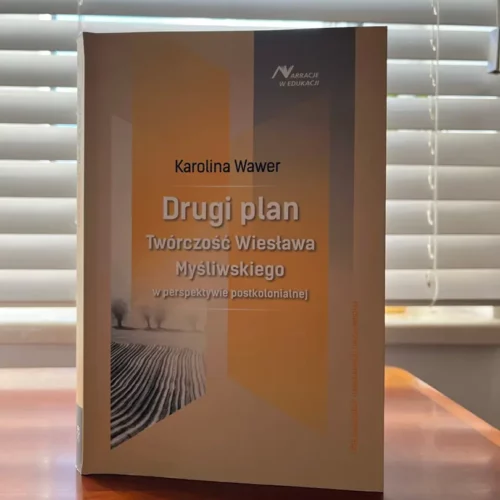Drugi plan. Twórczość Wiesława Myśliwskiego w perspektywie postkolonialnej
(Eng. Background. Wiesław Myśliwski’s work in a postcolonial perspective)
Karolina Wawer’s book is an innovative, profound and, above all, convincing proposal for reading Wiesław Myśliwski’s novel works. The author conducted a multi-faceted and comprehensive interpretation of all six of the writer’s novels: Nagi sad (1967), Pałac (1970), Kamień na kamieniu (1984), Widnokrąg (1996), Traktat o łuskaniu fasoli (2006) and Ostatnie rozdanie (2013). She has taken their reception into account, but has herself proposed a reading that differs from previous ones. She considered contemporary cultural theories, especially post-colonial and post-dependency criticism, as the most relevant interpretative key.
From a review by prof. dr hab. Krzysztof Biedrzycki
When interpreting Myśliwski’s prose, Karolina Wawer takes into consideration such issues as: internal colonisation, which is crucial for the relations between the village and the manor, and the situation of disinheritance resulting from social changes, implying multiculturalism and, consequently, forcing the characters to define their attitude towards the Other. In her interpretations, the author willingly and boldly reaches for secondary motifs, which she perceives as hidden clues allowing for a slightly different interpretation of the main plots of individual novels.
From a review by dr hab. Joanna Hobot-Marcinek


